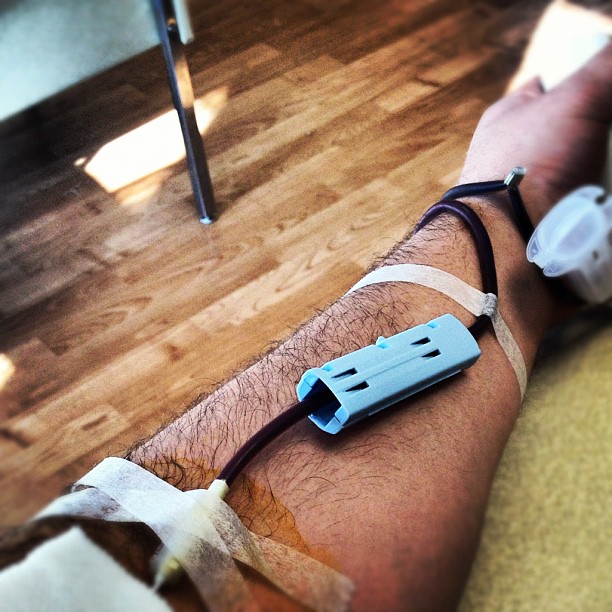World Blood Donor Day sees history being made as Gay and Bisexual men will now be able to donate blood, plasma and platelets.

Male blood donors in England, Scotland and Wales can now give blood, regardless of whether they engage in sexual relations with men. NHS Blood and Transplant reports that, from today, every donor will instead reveal if they have regular sex. If they indicate that they do, they will be asked about their recent sexual behaviours, regardless of gender or sexual preference.
The new eligibility rules, which come in to effect today on World Blood Donor Day, allows anyone with the same sexual partner over three months to donate. This will allow gay and bisexual men to give blood while remaining safe.
Chief Nurse Ella Poppitt says that patient safety is “at the top of everything we do”. The change sees the risk of sexual infection assessed differently. The assessment is now tailored for the individual, rather than sweeping generalisations.
The donors will still be put through the same screenings as before to “maintain the safety of blood being sent to hospitals”. As with before, eligibility of individuals will be based on individual circumstances surrounding travel, health and any behavior that increases risk of sexual infection.
While the change is welcome across the county, the Terrence Higgins Trust believes it still has a “discriminatory restriction”. There is a three month deferral period for who has been sexually active in a country where HIV and aids is common. The charity believes it references “most countries in Africa”. This restriction will prevent black communities from giving blood.
Why the change on World Blood Donor Day is so significant?
The 1970’s and 1980’s saw a lifetime ban placed on all men, who had engaged in sex with other males, from giving blood. This is due to a rise in HIV and hepatitis B cases throughout the time period.
HIV and hepatitis B transmit through blood. The ban was to keep the blood donated ‘clean’. This was before the effective screening available today was available.
2011 saw the lifetime ban lift. Instead a man could not have sex with another man for 12 months if he wanted to donate blood. This angered many LGBTQ + and Sexual Health campaigners, whose campaigns saw the rules change again in 2017. The 12 month ban was reduced to three. This rule still saw many people unable to donate blood, despite shortages.
Todays historic move allows bisexual and gay men, who are in monogamous relationships able to donate for the first time. This change will, hopefully, help with the call for donations as numbers creep back up to pre pandemic levels.

Looking for additional living space or somewhere quiet to work from home? Look no further – Log cabins at affordable prices.